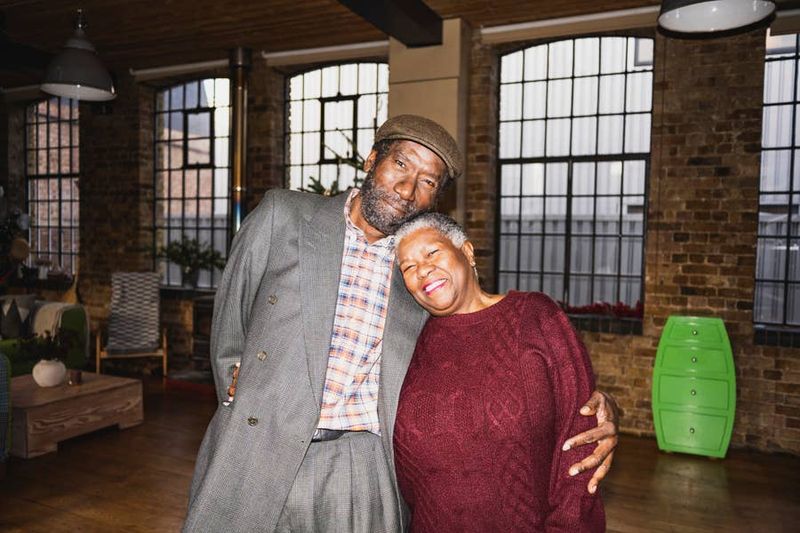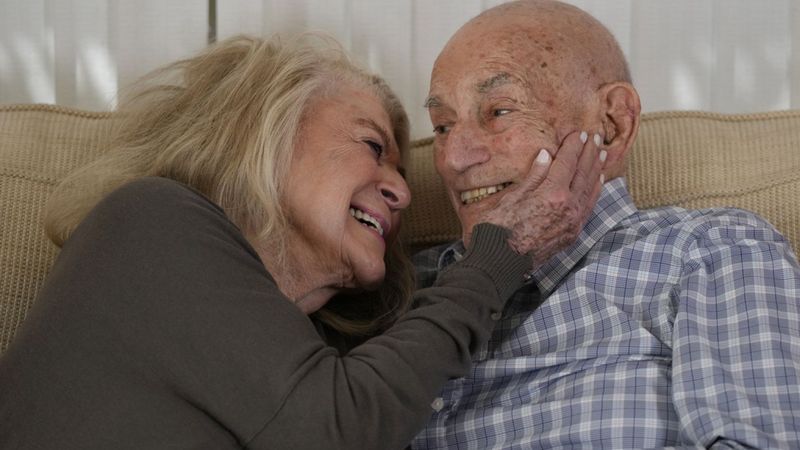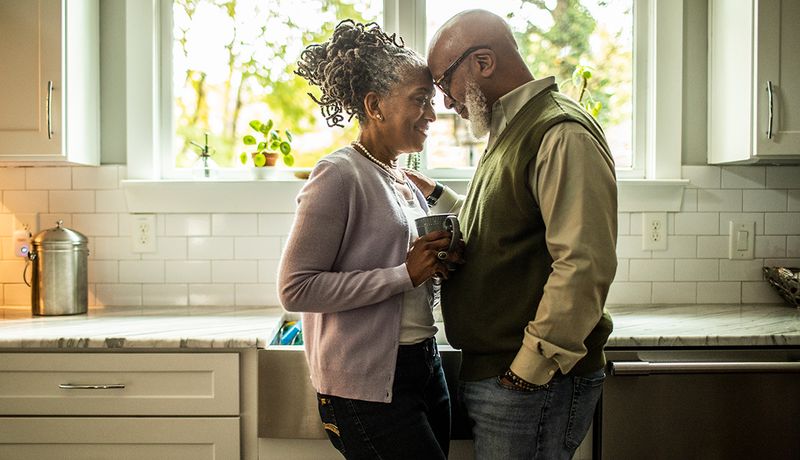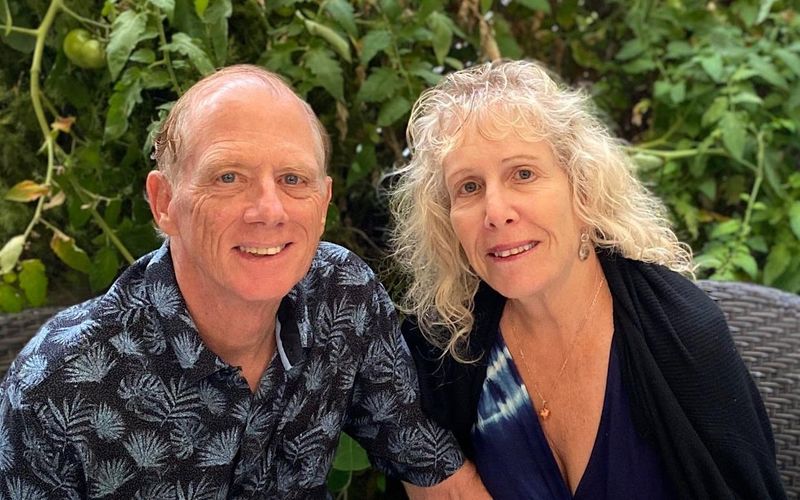I’ll skip the sugarcoating. Falling in love after 50 isn’t what you saw in movies or read in cheesy romance novels. It’s raw, honest, and hits completely differently than it did in your twenties.
I’ve watched friends get blindsided by heartbreak, then years later find something real—something that stuck for reasons that surprised even them. If you’re skeptical about late-in-life love, you’re not alone. But psychologists have a list of reasons why that second (or third) act just works—and why it can matter so much more than anyone tells you.
Here are 15 real, human reasons couples finally fall hard after fifty. No cliches. No wishful thinking. Just hard-won wisdom, with all the grit and warmth you deserve.
1. Self-Awareness and Maturity
Picture this: you’re mid-conversation, and suddenly you realize you’re not bracing for a fight or trying to prove yourself. You’re just—there. Present. That’s what self-awareness looks like after fifty.
Most of us spent our younger years faking confidence, dodging our own flaws, or trying to be whatever our partner wanted. But by now? You know yourself. You know your patterns and own your history, even the messy parts. There’s so much power in that.
Psychologists say this self-awareness means you walk into love with eyes wide open. No illusions, just clarity. You see your partner’s faults and your own and love anyway. It’s not just compatibility—it’s real acceptance, and it’s why love can finally stick.
2. Realistic Expectations
Who told us love had to be perfect? Whoever it was, they lied. After fifty, the fantasy fades and reality—sometimes beautifully—steps in.
At this age, you don’t expect your partner to read your mind or fix your life. You’ve seen enough disappointment to let go of fairytale scripts. Instead, you value honesty over grand gestures. You want warmth, not fireworks.
And psychologists say this shift makes all the difference. With grounded expectations, little things mean more. Disagreements don’t feel like disasters. Every day isn’t magic, but you know how rare it is to share true comfort. That’s what makes it last.
3. Open-Mindedness and Reduced Judgment
If you ever counted how many times you judged someone in your twenties, you’d probably cringe. But somewhere along the way, life humbles you.
After fifty, you’ve lived through enough of your own mistakes to stop keeping score for everyone else. There’s more space for quirks, odd habits, weird hobbies. You can let people be human, and it’s freeing for both of you.
That open-mindedness isn’t just about kindness. Psychologists say it makes love deeper. Less judgment means less shame, and suddenly, you’re both safe to be real. It’s a game-changer for intimacy.
4. Desire for Genuine Connection
You reach a point where you’d rather be alone than pretend. That’s when real connection starts to matter more than anything.
After fifty, the need for showy relationships disappears. You want someone who gets it—someone who isn’t afraid to sit in silence or laugh at old stories. It’s not about status or ticking boxes. It’s about honesty and presence.
Psychologists notice this hunger for authenticity showing up in powerful ways. When both people crave that depth, all the old games fall away. What’s left is simple and strong. That’s why so many find real love later in life.
5. Willingness to Be Vulnerable
The bravest thing I’ve seen is someone over fifty letting their guard down. Vulnerability isn’t weakness—it’s the price of real love, and you learn that the hard way.
Younger me thought hiding pain made me strong. But now, the real flex is admitting when you’re scared, hurt, or hopeful. It takes guts to open up after being let down before.
Psychologists say this readiness to be seen, flaws and all, transforms relationships. It invites trust, and trust builds intimacy. That’s how you end up with a love that feels safe—because you both stopped pretending.
6. Increased Self-Confidence
There’s a moment when you realize you actually like yourself, and it changes everything. You don’t chase approval or measure your worth by someone else’s happiness anymore.
After fifty, self-confidence isn’t loud. It’s quiet, steady, and rooted in surviving things you once thought would break you. You know what you bring to the table. You’re done apologizing for who you are.
Psychologists point out that this kind of confidence is magnetic. It draws the right partner—and lets you show up without armor. That’s when love actually sticks, because you’re finally showing up as you.
7. Appreciation and Gratitude
There’s a quiet shift that happens—you stop taking love for granted. Maybe it’s the losses you’ve faced, or just the time you’ve had to notice what matters.
After fifty, you don’t breeze past the good stuff. You say thank you for small things. You recognize effort, and cherish shared routines. Gratitude isn’t an afterthought, it’s the whole point.
Psychologists see this as a glue for lasting relationships. Appreciation turns ordinary days into something worth holding onto. It keeps resentment from building, and helps both people feel seen, not just useful.
8. Emotional Resilience
You don’t get to sixty without some scars. But surviving tough times doesn’t just leave you battered—it makes you sturdier.
Love in your fifties and beyond isn’t fragile. You’ve faced loss, disappointment, and curveballs. Instead of breaking, you learned to bend and bounce back. There’s a resilience that’s hard-won and impossible to fake.
Psychologists call this emotional grit the backbone of solid partnerships. When the hard days come, you don’t crumble. You lean in, adapt, and keep loving. That’s real strength—the kind life teaches you, not romance movies.
9. Clearer Communication
Remember when you used to fight just to win? Those days fade, and something better takes its place: actual communication.
By fifty, you know what bad communication costs. So you learn to listen, not just talk. You get clear about needs, boundaries, and apologies. There’s less guessing, more asking.
Psychologists say this clarity is a superpower. It keeps bitterness at bay and lets love breathe. Not every conversation is easy, but at least they’re real—and that’s what turns strangers into soulmates.
10. Shared Life Goals
You know those little dreams you put on hold for decades? After fifty, they finally get a shot. Shared goals suddenly feel less like chores, more like a second chance.
Maybe it’s travel, volunteering, or just making a cozy home together. You have clarity about what matters and don’t waste time on things that drain you. Your partner’s dreams matter, too.
Psychologists note that alignment like this makes relationships feel like teamwork, not a tug-of-war. It’s not about losing yourself; it’s about building something that matters—together.
11. Letting Go of Baggage
You can’t carry old heartbreak into new love and expect miracles. At some point—often after fifty—you choose to let go, or you stay stuck.
This isn’t amnesia. You remember what happened, but you stop letting it control you. Together, you make space for each other’s stories without dragging every ghost into the room.
Psychologists say this release opens doors. When you stop living in the past, you finally give new love a fair shot. It’s scary, but those who risk it know the reward: a relationship that isn’t haunted.
12. Freedom from Societal Pressure
Ever notice how little you care about judgment after a certain age? By fifty, outside opinions lose their grip. You start doing what makes sense for you.
Society’s rules about “age-appropriate” romance or how couples should act—those go out the window. You might move in together before marriage, start dating again, or just stay single by choice. You decide.
Psychologists believe this freedom gives love room to breathe. You get honest about what you want, and for the first time, maybe you actually get it. That’s worth celebrating.
13. Better Conflict Resolution
Fighting used to mean someone had to win. By now, you just want peace. Arguments are less about scoring points and more about understanding what hurts.
You listen more, snap less, and—here’s the magic—you own up to mistakes quicker. You learned what doesn’t work, often the hard way. Now you choose your battles and try to find solutions that stick.
Psychologists swear by this growth. Conflict doesn’t destroy love when you stop treating it like a war. Instead, it becomes an invitation to grow closer, not farther apart.
14. Prioritizing Quality Time
Remember racing through life, barely pausing for a meal together? After fifty, time feels different. You start making it count.
You savor small rituals: slow breakfasts, evening walks, movie nights without scrolling on your phone. You value shared moments more than big events. These aren’t chores, they’re choices.
Psychologists say couples who protect quality time stay closer, even as the world spins on. It’s not about quantity; it’s about showing up. After fifty, you finally have the wisdom—and the courage—to do just that.
15. Embracing Change Together
Change used to be terrifying. After fifty, it still is—but you’re not alone in it anymore.
You face empty nests, new health realities, retirement, or even starting over. Instead of clinging to what was, you find ways to adapt—together. There’s humor in the chaos, and comfort in knowing someone’s with you through it all.
Psychologists know couples who face change as a team build a bond that’s flexible, not brittle. It’s not about having all the answers. It’s about being willing to face new chapters—side by side.
















